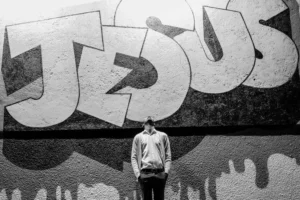“Lord, please make me a light for you in my class today,” I whispered. This simple prayer was a habit as I walked across green lawns and past the red brick and ivy of the University of Idaho. I prayed this prayer on the first day of my communication ethics class, never imagining the impact it would have on my life.
We crowded into a classroom without enough seats for everyone: a common scenario on the first day. I sat on the front row; paying respect to the tradition that front-row students get A’s, and because I need glasses. The instructor came into the classroom a few minutes late. He introduced himself and announced that he taught using the Socratic method. He then asked, “Who believes there are absolute right and wrong ethics?”
I immediately raised my hand, looking up to notice that, in a class of more than 70 students, only a few others were also raised. I assumed more hands would rise. I assumed that my hand would blend with hands over most of the class in an almost anonymous poll. I assumed wrong. The professor pointed to me and asked, “Why?”
Alas, I was a victim of the Socratic method. By raising my hand, I was asking for interrogation. I was not ready to answer. Though I do not remember what I said, I remember well the reaction to my words. Several students began to laugh. The classroom was roaring with voices of dissent, and one student took the opportunity to yell at me. The professor ended the class by explaining that there cannot be an absolute right and wrong system of ethics.
I left class that day embarrassed and enraged. How dare that professor do this to me? I can’t believe that they laughed at me! I wish I had said the right thing, that I wouldn’t have sounded so inept.
At that time, I was involved in a Bible study of Philippians 2:5-11 called The Mind of Christ. In it, we discussed the attitude Christ had toward those who would eventually nail Him to a cross. It prompted a lot of self-reflection and I realized I was looking at my professor as my enemy, instead of loving him.
Philippians 2 has always been one of my favorite passages. Phillippians 2:7 and 8 reads Jesus “made himself of no reputation, and took upon him the form of a servant and became obedient unto death, even death on a cross.” I realized how un-Christlike my attitude was toward this professor. My thoughts were retaliatory. I needed to be a better ambassador for Christ.
I was on the spot for the Lord. It was not a position I sought; some would say it was coincidental. But I knew God had arranged that situation. When I prayed that first day of class, I had no idea I would be put on the spot before everyone I prayed for. It was a general prayer; I didn’t expect it to be fulfilled so directly, so completely. I was thinking small, like loaning someone a pen with a Bible verse printed on it, or maybe even telling one person that I have a relationship with God that changed my life. I didn’t go before the class with persuasive speech or great influence.
From then on, I did my classwork as one working for the Lord. I prayed that God would continue to arrange opportunities for me to be a witness for Him. God answered that prayer abundantly! When we received our first papers back in class, the professor threw another curveball. “There were some exceptional papers written,” he said. “Sara Eggers, will you read your answer to the first question?” I started to read from my seat. “No, come stand up here and read it.” Tears started to form in my eyes. I was genuinely frightened. What if they yelled again? My paper actually quoted the Bible! I stood, knees shaking, and read the paper without looking up. When I sat down, the class was applauding. Several students said, “Good job.” The professor announced, “The only paper in the class to use the term antinomianism. She even quoted the Bible.”
For the rest of that semester, I read every paper I wrote in front of the class. I addressed all sorts of issues, including adultery and absolute truth, according to Biblical standards. Students commented, “I could never write like that.” I couldn’t either. Every word I wrote was a gift from God. It got to the point where I knew as I wrote the papers that I would be reading them aloud. I started looking forward to these days with some excitement and a lot of fear.
The next semester, I took another class from the same professor. At the end of this semester, my professor told me he was leaving the University. His Idaho experience was not what he expected. He said goodbye, and told me that having me as a student made his time in Idaho worthwhile. In all my time as his student, I never knew this professor to be prone to flattery. In fact, it was quite the opposite. Until that point, I wasn’t even sure my professor liked me! That is why I know his words were genuine.
This experience blew me away. I spend a lot of time falling down, stunned at my own failures. I never expected to be used by God in such a dramatic way. Today, we are all in a battle that can’t be fought in courtrooms alone. It is a battle for men’s hearts and minds. When we are willing to be laughed at, scorned, and humiliated for Christ, we will be blessed. It is not easy to write these words. I have been laughed at many times for my faith, and it is not exactly fun. I didn’t ever see my professor fall to his knees in repentance. But I know that God worked through me in some way when I was willing to be humiliated for His sake.
I encourage all students who share my faith to pray that they, too may be put on the spot for their faith, and given a chance to shine like stars in the heavens. I do not seek to be obnoxious and offensive, but certainly bold in witnessing to others. May God bless you richly as you seek the Lord’s will in this area of your own life.
Copyright 2002 Sara Eggers. All rights reserved.










